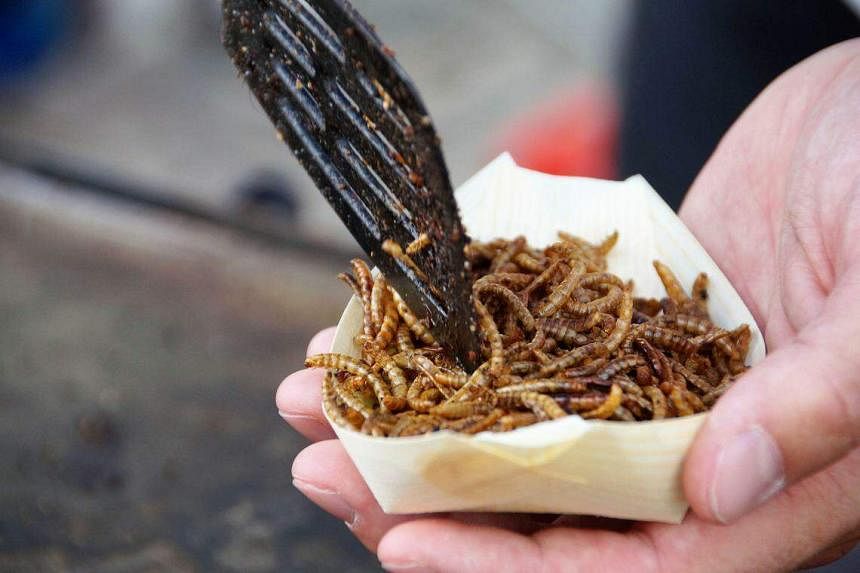- Joined
- Feb 26, 2019
- Messages
- 12,449
- Points
- 113
www.straitstimes.com
The virus was detected in pig carcasses in Singapore’s abattoir, a facility in Jurong where animals are slaughtered for food, the Singapore Food Agency (SFA) said on Thursday.
The deadly swine disease, which does not infect humans, is highly contagious among wild boars and pigs.
SFA said it has stopped the import of live pigs from Pulau Bulan, which accounts for about 15 per cent of Singapore’s total pork supply, while investigations at the farm in Indonesia are ongoing.
It added: “Due to the current situation, there will be temporary disruptions to the supply of freshly slaughtered pork from Sunday onwards.”
Meanwhile, the agency will work with the industry to increase the availability of chilled and frozen pork from other sources.
Singapore imports pork from over 20 sources, including live pigs from Sarawak, Malaysia, as well as chilled or frozen pork from Australia, Brazil and other countries.
Said SFA: “Consumers can choose a variety of food types and from different sources, and opt for other forms of meat such as frozen or chilled pork, or other protein options.
“There will be ample supplies for everyone if we buy responsibly and do not hoard.”
SFA is also working with the abattoir to maintain biosecurity measures and sanitise its premises as well as the surrounding environment after the pigs there have been slaughtered.
It said pork available in Singapore remains safe for consumption as ASF does not affect humans and is not a food safety concern.
It added: "Pigs that are not sick and passed SFA’s inspections can be eaten.
“SFA and the Animal and Veterinary Service, a cluster of the National Parks Board, will continue to monitor the situation closely.”
Singapore’s import conditions for pigs, pork and pork products are based on science, and take reference from guidelines and standards from the World Organisation for Animal Health.
Philippines bans pig products from Singapore following African swine fever detection
China's pig farms battle new surge in African swine fever
SFA requires regions exporting raw pork to Singapore to be free from the virus, which can be transmitted through raw meat from infected pigs.
Processed pork products from ASF-affected areas, however, are allowed to be imported and sold, provided they have been heat-treated to inactivate the virus, said SFA.
In February, Singapore confirmed its first case of ASF, which was detected in a wild boar carcass in the north-west of the island.
The highly contagious disease, which arrived in Asia-Pacific in 2018, has led to the culling of millions of pigs in an attempt to curb its spread.
To date, a total of 18 wild boars in Singapore have been found to be infected with ASF.
Wild boar carcasses in more parts of S'pore test positive for African swine fever
Singapore stops import of live pigs from Indonesian island after African swine fever detected
SINGAPORE – A consignment of live pigs from Indonesia’s Pulau Bulan to Singapore has been found to be infected with African swine fever (ASF).The virus was detected in pig carcasses in Singapore’s abattoir, a facility in Jurong where animals are slaughtered for food, the Singapore Food Agency (SFA) said on Thursday.
The deadly swine disease, which does not infect humans, is highly contagious among wild boars and pigs.
SFA said it has stopped the import of live pigs from Pulau Bulan, which accounts for about 15 per cent of Singapore’s total pork supply, while investigations at the farm in Indonesia are ongoing.
It added: “Due to the current situation, there will be temporary disruptions to the supply of freshly slaughtered pork from Sunday onwards.”
Meanwhile, the agency will work with the industry to increase the availability of chilled and frozen pork from other sources.
Singapore imports pork from over 20 sources, including live pigs from Sarawak, Malaysia, as well as chilled or frozen pork from Australia, Brazil and other countries.
Said SFA: “Consumers can choose a variety of food types and from different sources, and opt for other forms of meat such as frozen or chilled pork, or other protein options.
“There will be ample supplies for everyone if we buy responsibly and do not hoard.”
SFA is also working with the abattoir to maintain biosecurity measures and sanitise its premises as well as the surrounding environment after the pigs there have been slaughtered.
It said pork available in Singapore remains safe for consumption as ASF does not affect humans and is not a food safety concern.
It added: "Pigs that are not sick and passed SFA’s inspections can be eaten.
“SFA and the Animal and Veterinary Service, a cluster of the National Parks Board, will continue to monitor the situation closely.”
Singapore’s import conditions for pigs, pork and pork products are based on science, and take reference from guidelines and standards from the World Organisation for Animal Health.
Philippines bans pig products from Singapore following African swine fever detection
China's pig farms battle new surge in African swine fever
SFA requires regions exporting raw pork to Singapore to be free from the virus, which can be transmitted through raw meat from infected pigs.
Processed pork products from ASF-affected areas, however, are allowed to be imported and sold, provided they have been heat-treated to inactivate the virus, said SFA.
In February, Singapore confirmed its first case of ASF, which was detected in a wild boar carcass in the north-west of the island.
The highly contagious disease, which arrived in Asia-Pacific in 2018, has led to the culling of millions of pigs in an attempt to curb its spread.
To date, a total of 18 wild boars in Singapore have been found to be infected with ASF.
Wild boar carcasses in more parts of S'pore test positive for African swine fever



